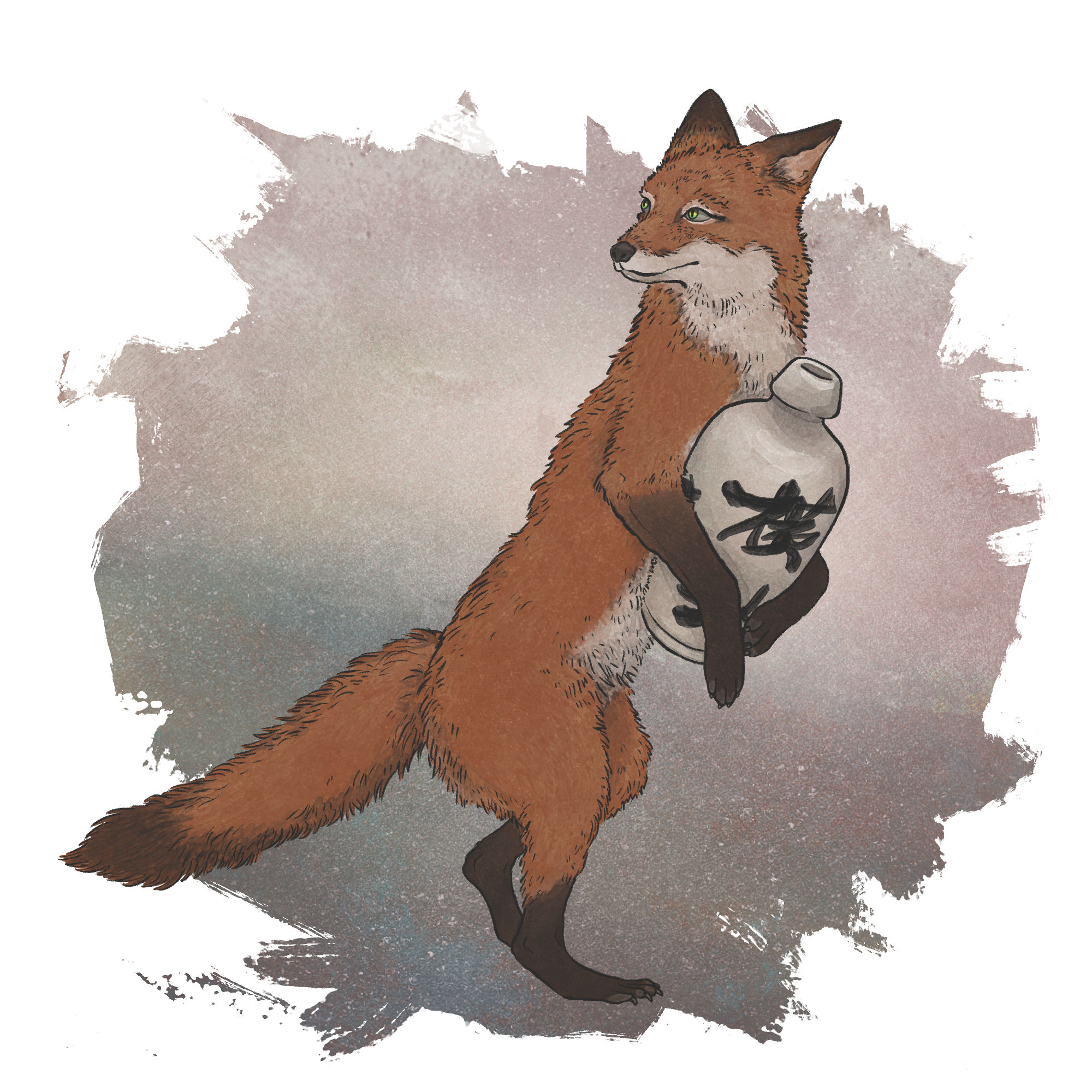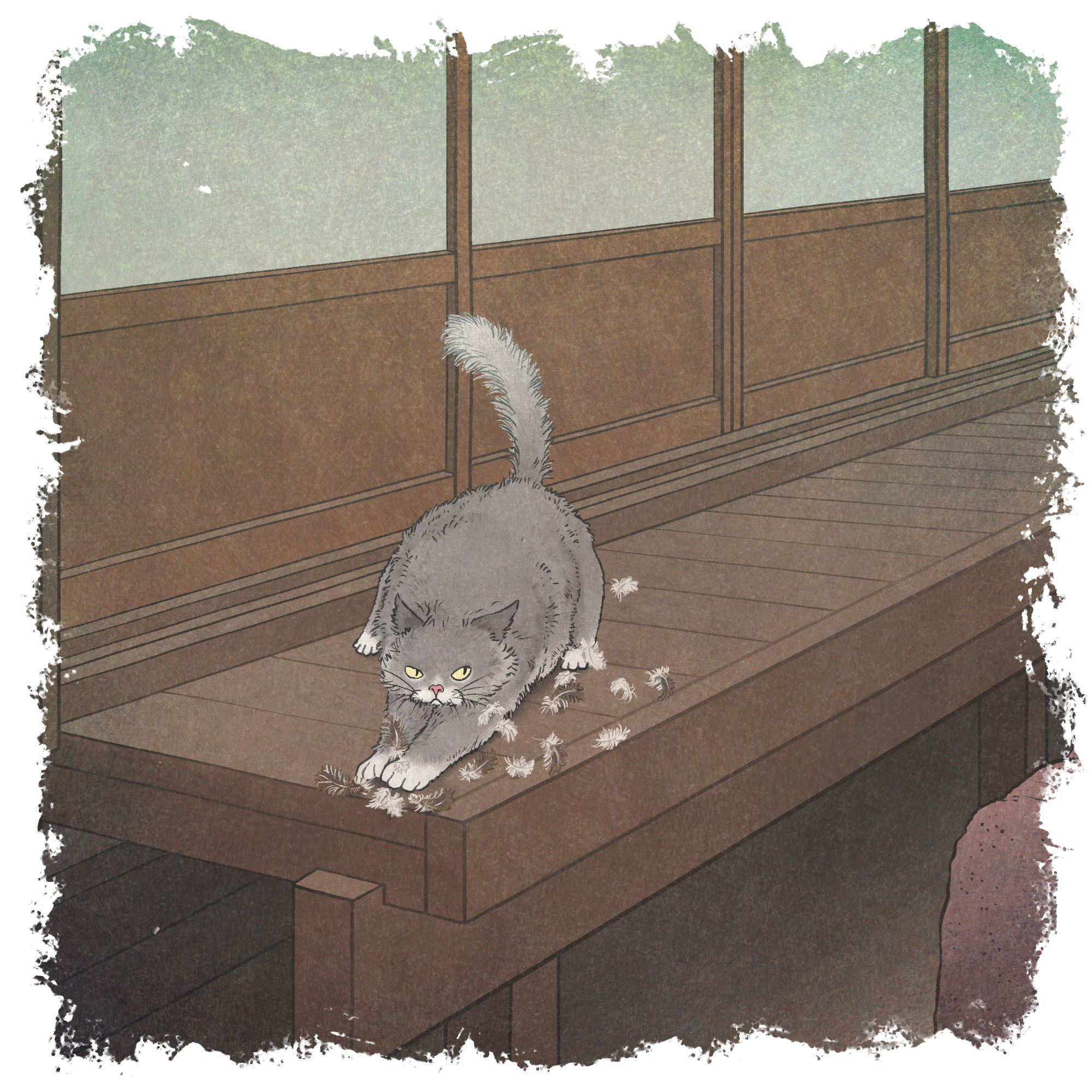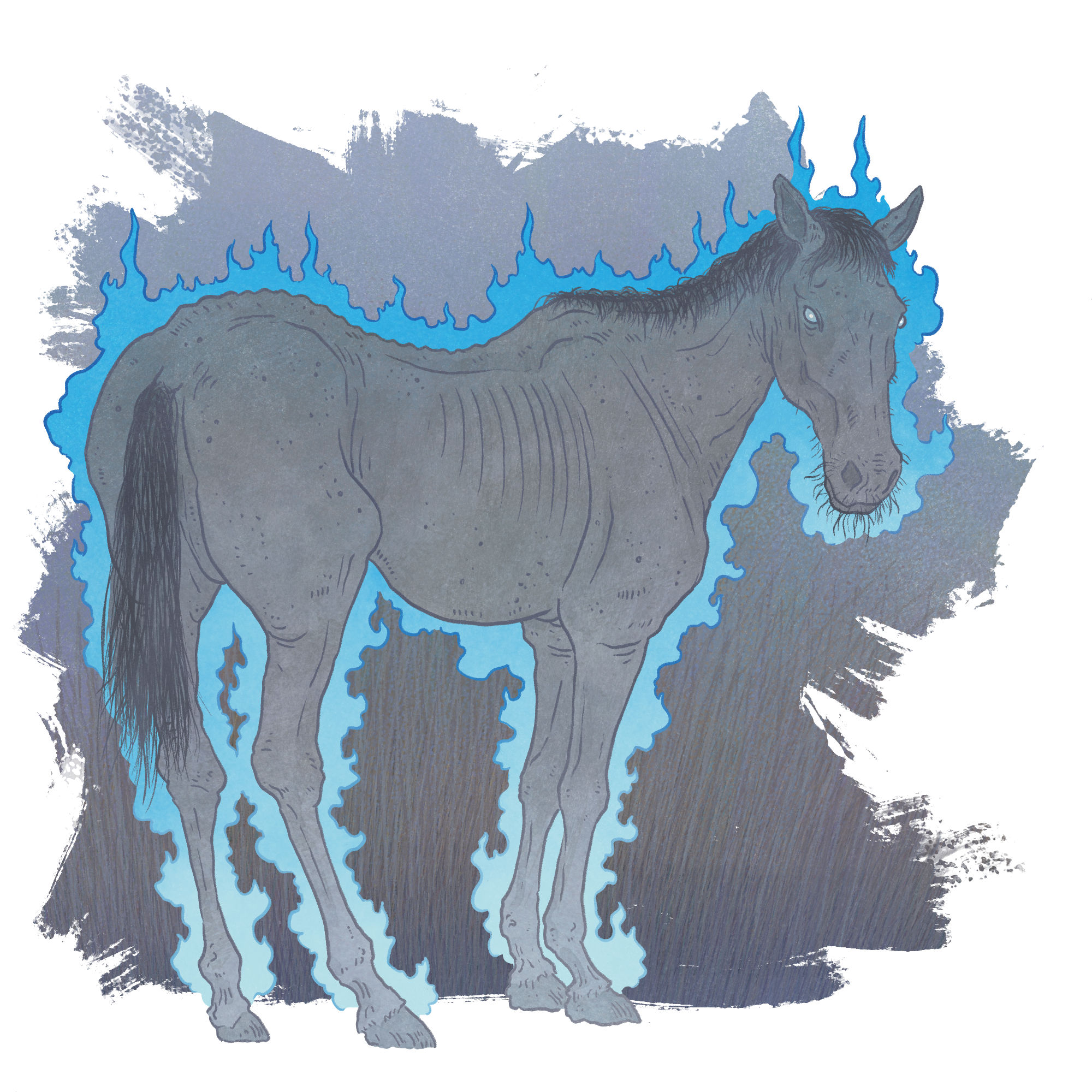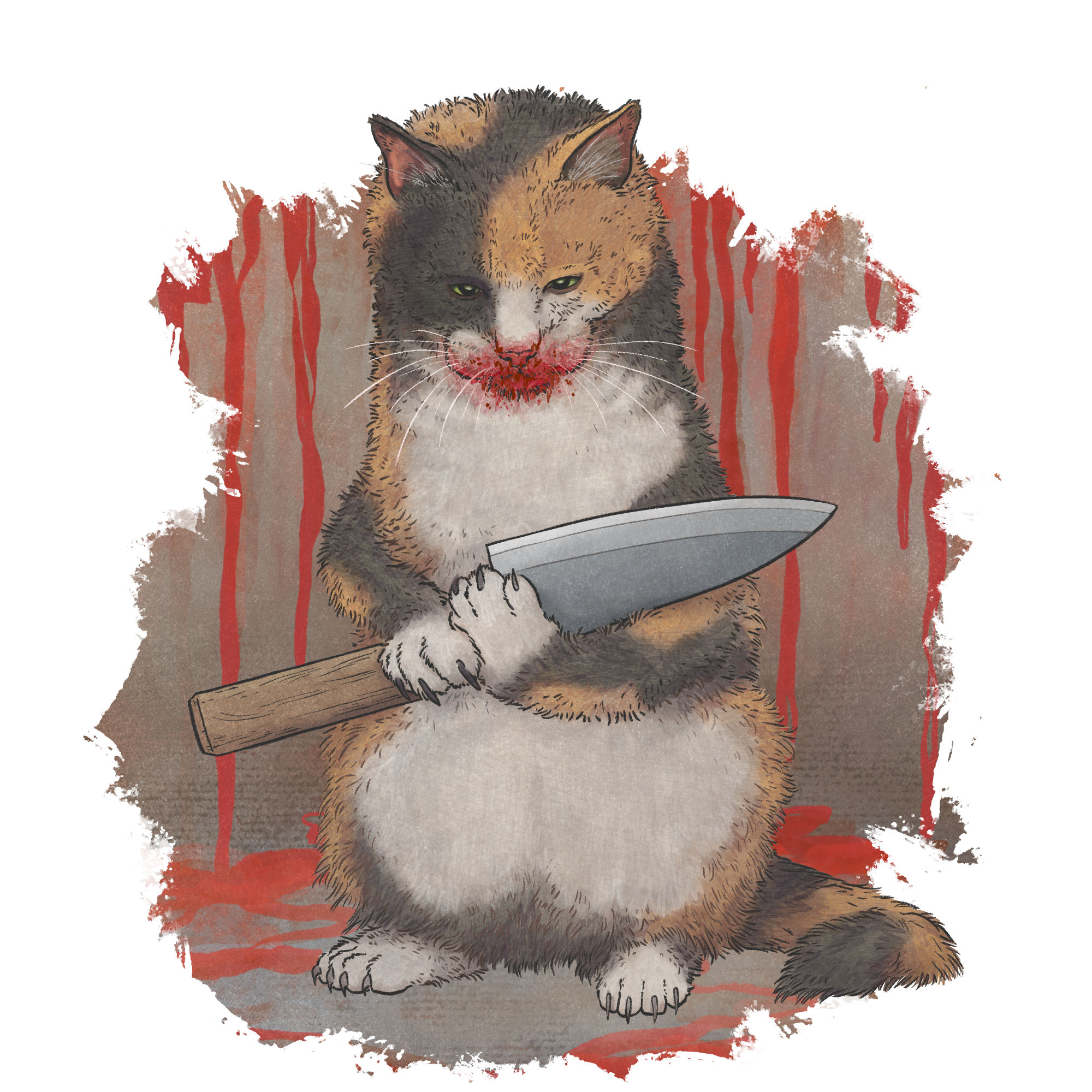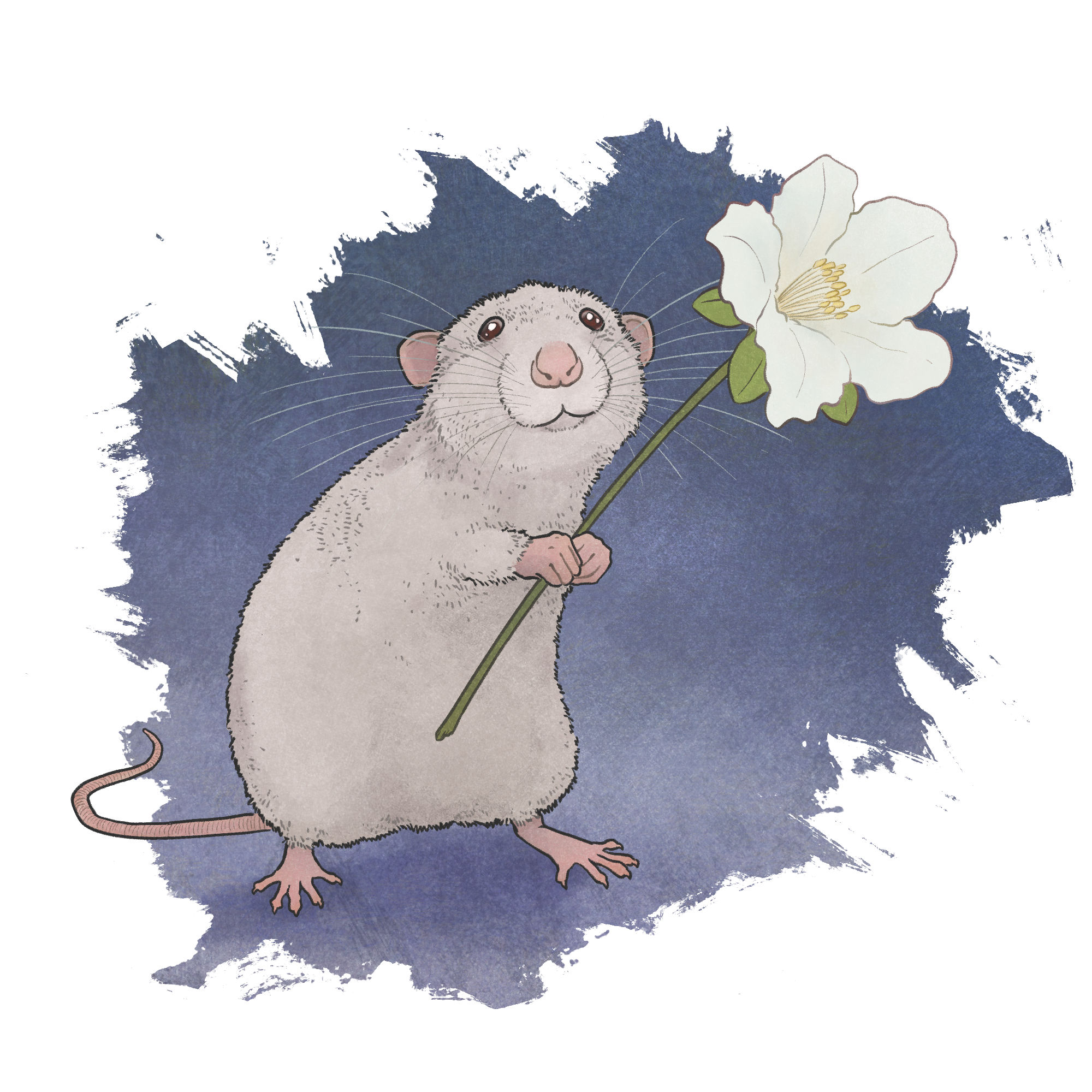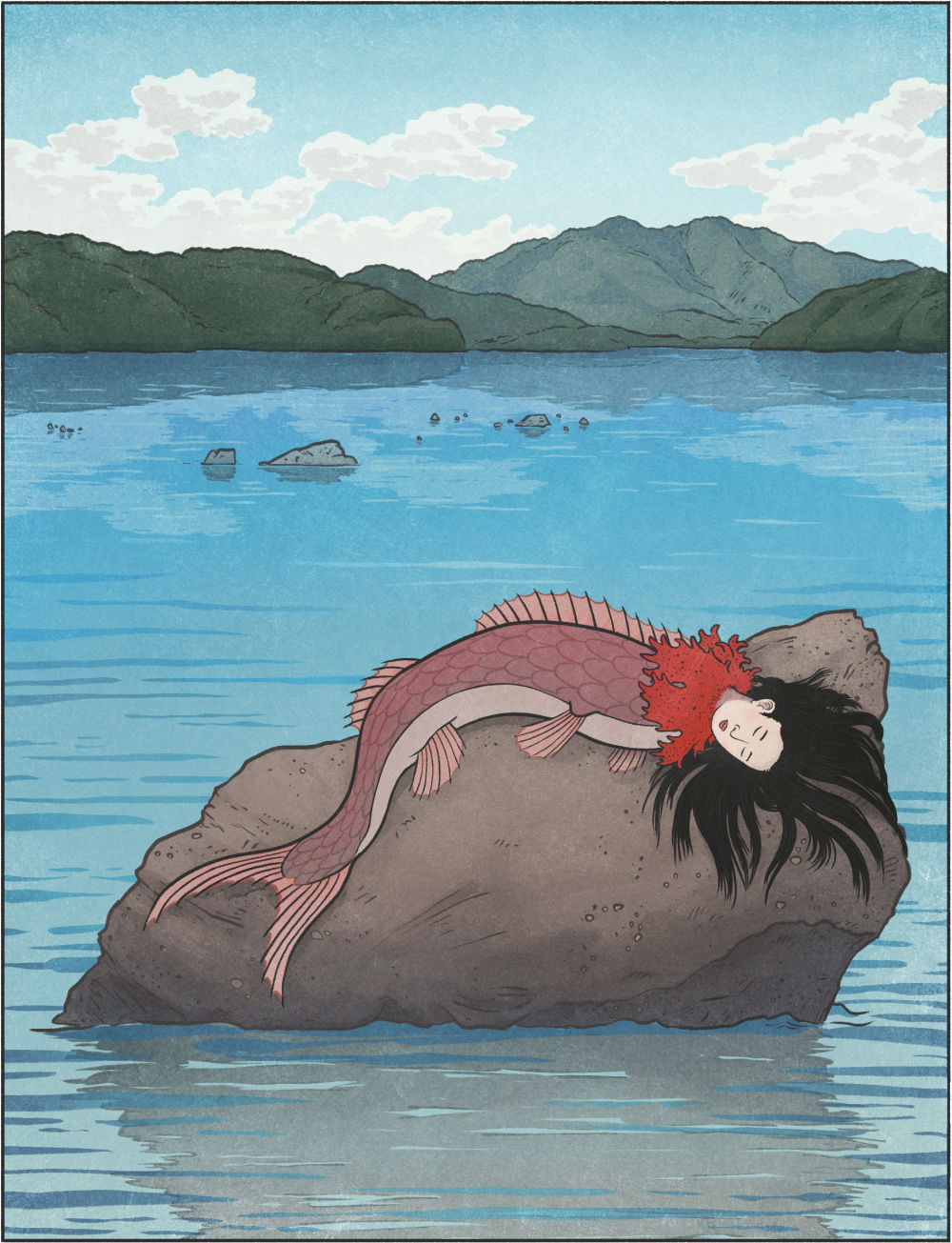Tonight’s story is another more narrative one like last night’s. And even better, it has two yokai for the price of one! You don’t often hear stories about yokai working together to get something done, but there are a few stories like that. In this one, we have a team of yūrei + kitsune.
I enjoy that Negishi seems to have taken the time to investigate this mystery while he was in Edo. His final paragraph puts the story into a contemporary context, and while it doesn’t add anything to the story itself, it does make it feel more in touch with the times.
The Ghost Who Asked a Fox to Stop a Drinking Problem
In Sakuma-chō, Kanda, there lived a man named Mankichi who loved sake and drank morning and night. One time, he called his daughter and said, “Prepare five gō (one gō is 180 ml) of sake for me to drink.”
Knowing his preferences, she took down the sake warmer and went to the sake shop next door and had them pour five gō of sake. Then she warmed it up and gave it to her father. Her father was pleased and tried to pour it into his bowl, but he found there was not a single drop inside.
He called his daughter and demanded, “What is this?”
His daughter was greatly surprised. “I carefully watched them pour the sake, so that cannot be possible,” she said.
She took the sake warmer, and this time had them pour one shō (1.8 liters) of sake. She brought it home and immediately warmed it up and served it. When her father poured it into his bowl, once again there was not a single drop inside, leaving him in a terrible mood.
The daughter was astonished and said, “The other day mother appeared to me in a dream and said that your heavy drinking was bad for your health and bad for the family. She told me to watch carefully and get you to stop drinking. I tried to get you to stop, but you wouldn’t listen, so I didn’t press any further. Could this be why the sake disappeared?”
The father replied, “I also had such a dream, but I dismissed it as nonsense. However, if that is the case, I shall stop drinking.”
And so, for a time afterward, he did stop. Then, the sake flasks and jugs that had recently vanished reappeared. However, at a neighborhood meeting he once again broke his vow and drank. Once again, all of his sake utensils vanished, and his daughter began to act as if she was possessed and blurted out:
“The spirit of my late mother, grieved by your excessive drinking, asked a fox to help reprimand you. Since you broke your promise, I have decided to return and be your chaperone.”
The father was terrified, and he vowed, “I swear firmly that from this day forward I will abstain from alcohol!”
After that, the daughter quickly recovered from her madness.
According to rumor, at Heisaburō’s store in Asakusa Mototorigoe-chō, there is a fifty-three year old man named Mankichi. His current wife, Sugi, is forty; his son, Ichitarō, is twenty-five; and his daughter, Gin, is eighteen. It is said that his late wife, Ei, who died sixteen years ago, was always worried about Mankichi’s heavy drinking, and was always admonishing him. Gin became mentally ill around the end of this January, and as she rambled about various things, it became clear that Ei had possessed her. As a ghost, Ei couldn’t do anything herself, so people say she asked a fox to use its magical powers to admonish Mankichi. Although it’s a strange story, it has become the talk of the town, so I am recording it. While the kindness of the late wife was only natural, people laugh at how the fox she enlisted was also a kind one.
